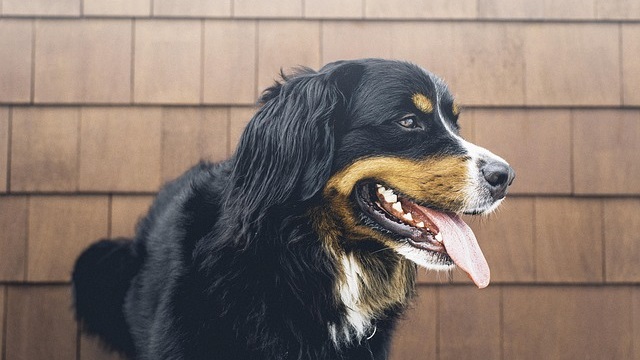Why Is My Dog Panting So Much? Signs, Causes, and When to Worry
“Why is my dog panting so much?” If you’ve been asking yourself this question for a while now and noticed your pup panting abnormally, especially at night, you are right to be worried.
Panting is normal in dogs, but excessive panting without a clear reason certainly isn’t, as it can be a sign of a health issue or stress.
Key Takeaways
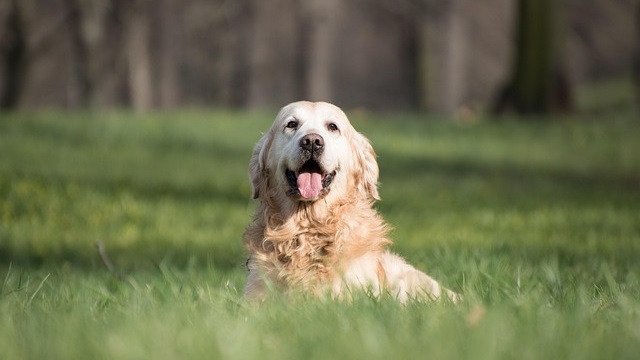
- Dogs pant to regulate body temperature. It often occurs during exercise, play, warm weather, or excitement. It subsides when the pooch cools.
- Heatstroke, pain, discomfort, medication side effects, and several medical conditions can be the culprits behind excessive panting or unusual panting patterns in your dog.
- Medical conditions that are commonly associated with excessive panting include heat stroke, heart disease, heart failure, Cushing’s disease, poisoning, anemia, and various respiratory issues.
- Whenever you’re uncertain or the dog has been panting for an extended period without a clear cause, contact your veterinarian.
- The Maven Pet Health Tracker helps you stay proactive with your dog’s health. It makes it easier to understand if your dog is panting excessively, as you have real-time data on your pup’s vitals, like heart and respiratory rates.
When Is Panting Normal?
Panting is normal when your dog is excited, stressed, anxious, playing, or exercising. It’s also normal in warm weather.
This is because dogs pant to regulate body temperature, just as we sweat to do the same. Dogs don’t sweat, and panting is an effective substitute for this process, ensuring they maintain a normal body temperature.
Once the physical exertion or warm weather subsides, the panting will subside too, as long as its causes are typical. Excessive and abnormal panting will consequently happen when there’s no reason for it.
It’s crucial to understand the difference between normal panting and excessive panting caused by pain or another issue. You can also use a dog health tracker to act proactively.
Causes of Excessive Panting
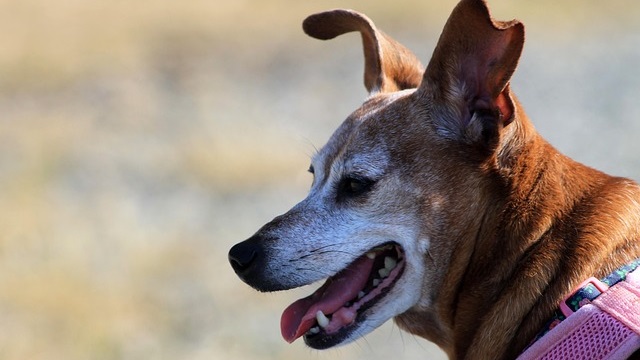
If you’re asking the question “Why is my dog panting so much at night?” or you’ve noticed your pup panting excessively multiple times without an apparent reason, the panting is likely abnormal and caused by something you should know about. Here are the most common potential causes:
- Heatstroke: If your dog has been in very warm weather or exposed to the sun for too long, it may be experiencing heatstroke. This is a serious condition, as the dog’s body temperature becomes dangerously high, typically above 106°F or 41°C. You should seek your vet’s help immediately and look to lower the temperature in the meantime.
- Pain or discomfort: Dogs tend to pant as a way to cope with pain resulting from an injury, a chronic condition, or internal discomfort, like bloating or an organ disease. If this is the case, there will likely be other signs too, like restlessness, whining, licking or biting an area, and a reluctance to move.
- Medical condition: If your dog is sick, excessive panting can be a symptom of that. Consider what your dog has or take them to the vet if there’s no underlying condition you’re aware of.
- Medication side effects: Certain medications, especially steroids like prednisone, can lead to excessive panting in dogs.
Bear in mind that if your question is “Why is my old dog panting so much?”, it’s important first to understand that older dogs tend to pant more because their respiratory muscles are weaker, which increases the likelihood of overheating.
Also, if your pooch is obese, i.e. when they weigh 20% or more above their ideal weight, they can start panting even from minimal activity. That’s simply because the added weight is putting additional strain on the dog’s body, making it harder to get enough oxygen, which is why obese pups tend to pant more.
Which Medical Conditions Should I Watch Out for?
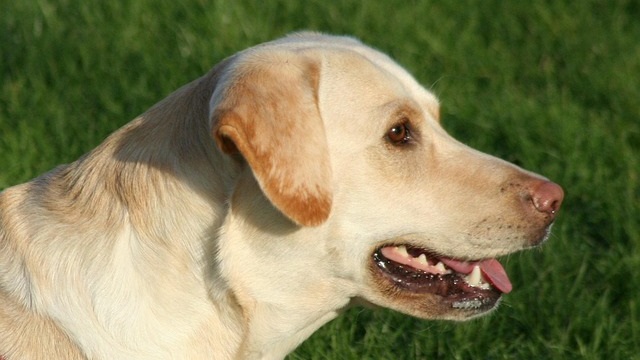
You’ve already seen that heatstroke is one of the most typical conditions to worry about when your dog is panting excessively, especially during the summer. You’ve also seen a partial answer to the question “Why is my senior dog panting so much?”
However, excessive panting can also be a sign of a medical condition. Let’s review the main ones you should be aware of:
- Heart disease or heart failure: Without proper heart function, the lungs don’t get enough oxygen, which leads to fluid buildup. This makes breathing harder and leads to more panting.
- Respiratory issues: For obvious reasons, various respiratory conditions can lead to excessive panting. This includes pneumonia, bronchitis, lung tumors, laryngeal paralysis, a collapsed trachea, and asthma.
- Cushing’s disease: Excessive panting is a common symptom of this endocrine disorder, especially when combined with higher thirst and urination, increased appetite, hair loss, and thin skin.
- Anemia: The lower red blood cell count makes it harder for the body to carry oxygen through the blood. And since there’s not enough oxygen in the body, the dog will pant more to compensate.
- Toxic ingestion or poisoning: If your dog ate a poisonous substance, it will likely start panting excessively, as well as drool, vomit, and possibly experience seizures or tremors.
When Should I Call a Vet?
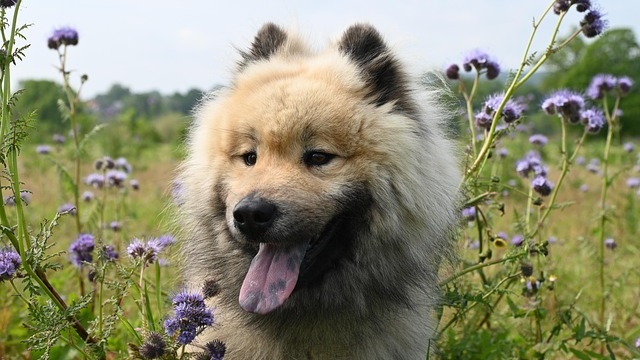
If you think that your dog is panting too much even after learning all of this, and you can’t determine the cause, you should definitely call your vet. You should also do it if you notice other symptoms, including:
- Changes in gum color
- Labored breathing
- Restlessness and inability to calm down
- Sudden weakness or collapse
- Confusion or disorientation
- Vomiting
- Diarrhea
- Wet coughs
- Swollen stomach
- Excessive drooling
Importance of Monitoring Heart and Respiration
“A dog’s heart rate holds valuable clues about their well-being. Subtle changes, before you’d ever notice symptoms, can reveal early signs of stress, pain, or underlying illness.” — Carolina Domingues, DVM, Veterinarian at Maven Pet.
Monitoring your dog’s heart rate and respiration can be incredibly valuable, as you’ll be more likely to uncover a potentially problematic condition early on.
Using a pet health tracker, like the one we at Maven Pet offer, will give you detailed data on your pup’s vitals and even notify you when there’s a change that might indicate something serious.
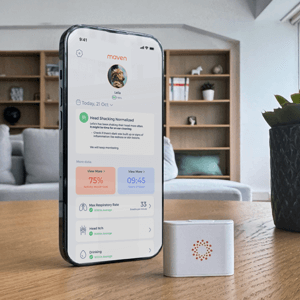
Maven Pet
Health Monitor
#1 Vet-recommended pet monitor! Tracks activity, rest, respiratory rate, water intake, scratching and other health indicators 24/7
You’ll get an overview of this in your pet health app, making it more convenient to gain insights into your dog’s health. On top of that, you can input symptoms you notice in the app, and have all that information ready for your vet to review.
With such detailed data at hand, the vet will know what to look for and which tests to run, which will significantly shorten the time it takes to receive a diagnosis.
Bottom Line
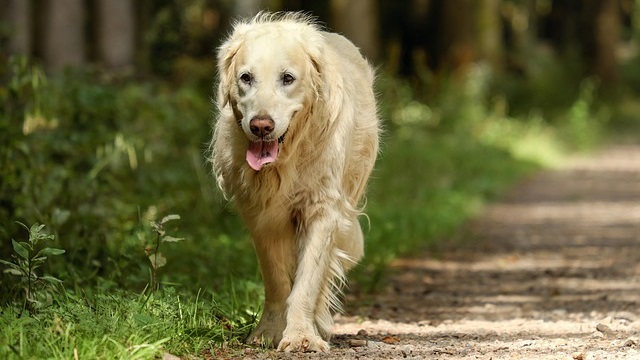
Panting is normal in dogs, but only when there’s a clear reason, like heat regulation, excitement, exercise, or anxiety. However, it isn’t considered normal if it’s happening for no reason, at night when the pup is resting, or if it’s harsher or excessive.
If panting doesn’t subside after a cause has passed, you should consider calling your vet, especially if you’re worried about a medical condition being involved.
The important thing is to remain calm and react appropriately, ideally, even proactively if possible.
Maven Pet focuses on improving the quality of life of our pets with technology, using artificial intelligence (AI) to enable proactive pet care. By accurately collecting and monitoring pet data 24/7 and flagging any irregularities, Maven Pet empowers pet parents and veterinarians to stay ahead of potential health issues, ensuring the well-being and longevity of our beloved companions.

